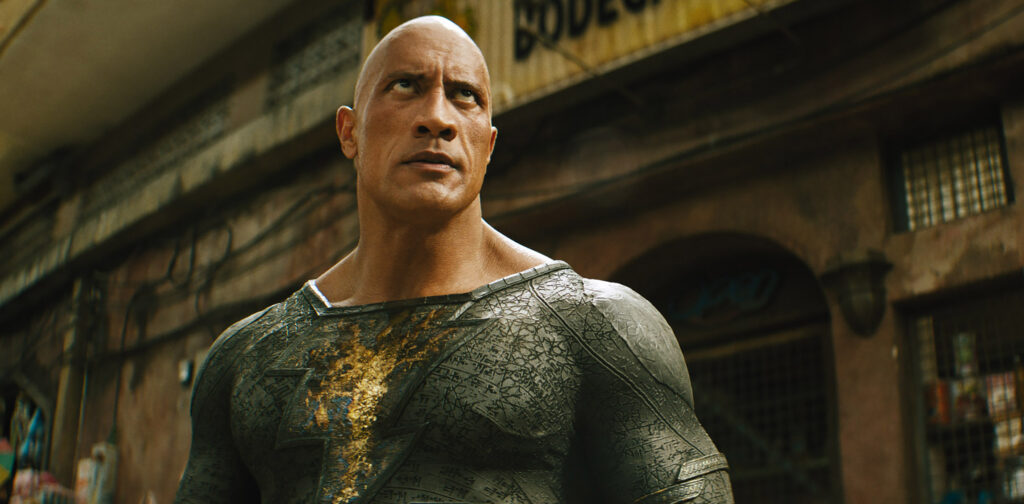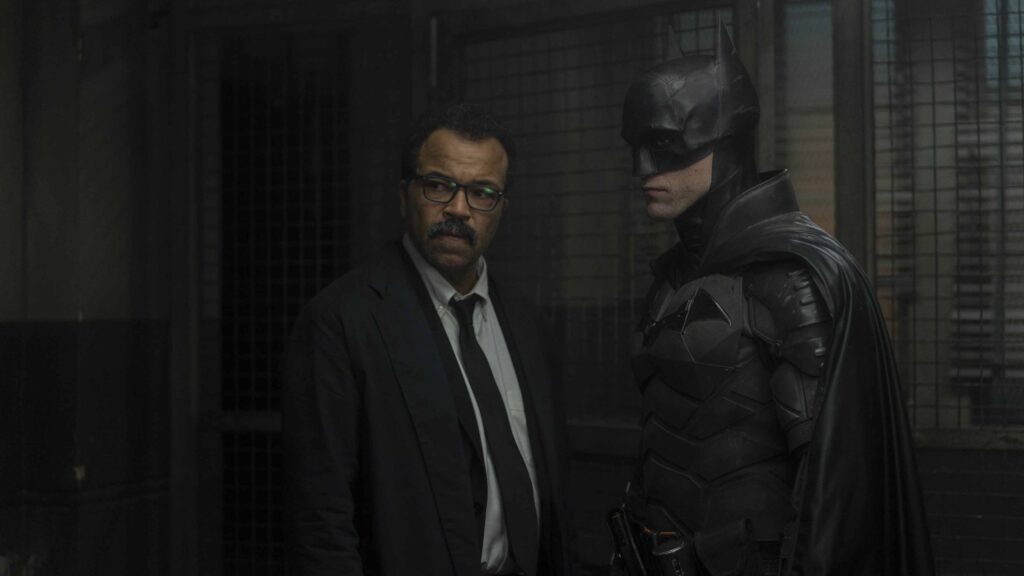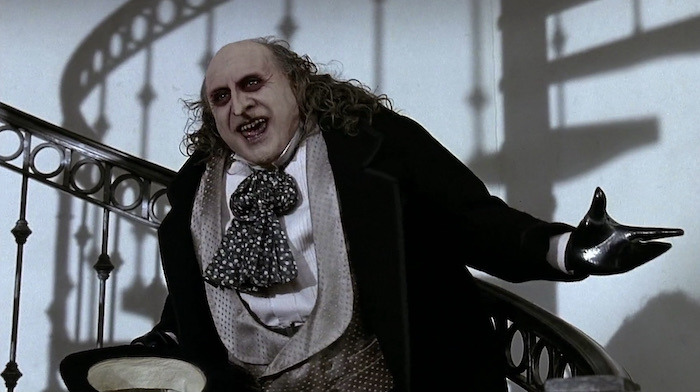Black Adam can’t overcome its atrocious screenplay
Written by Ian Thomas Malone, Posted in Blog, Movie Reviews, Pop Culture
Part of the beauty of the Justice Society of America in the nearly forty years since the genre-defining comic book crossover event “Crisis on Infinite Earths” erased their home planet Earth-2, itself largely a creation designed to differentiate older Golden Age heroes from their more modern Silver Age counterparts, was the way that the team came together to fight the good fight even as the world had largely passed them by. There’s something inherently relatable in watching more obscure, less powerful heroes battle back the tides of time and their own declining relevance. Ironically, given the frantic explosion-laden extravaganza that defines Black Adam’s attempt at a narrative, the JSA represented a quieter time for superhero storytelling.
Superhero filmmaking has come to embrace the obscure, making household names of characters such as the Peacemaker or the Guardians of the Galaxy that few people outside of diehard comic fans would have heard of just ten years ago. Characters like Black Adam and the JSA don’t completely fit under this bill, having achieved mainstream success back in the 1940s, but the idea that Shazam/Captain Marvel’s archnemesis’ live-action debut would come through a solo effort lacking Billy Batson entirely is still a bit hard to believe. The champion of Kahndaq has straddled the lines between villain and antihero for years, a fascinating, sly figure ripe for the greying morality of the post-9/11 era.
Dwayne Johnson has largely avoided villain-type roles throughout his career. His approach to Black Adam displays a puzzling amount of apprehension toward playing an antihero as well. The Kahndaq that Teth-Adam is awakened into is occupied by a force called the Intergang, which the film essentially presents as a Blackwater-type oppressive military force with an ill-defined mandate in the complex geopolitics of the Middle East. Leaning heavily into antipathy, Johnson’s best effort to sell Adam’s reluctance to rid the Intergang with a snap of the finger is the fact that he’s been asleep too long to care anymore, a lazy excuse indicative of Black Adam’s larger shortcomings as a film.
Black Adam squanders the DCEU’s meatiest moral quandary with an atrocious script hellbent on saying absolutely nothing interesting about its narrative or stacked roster of characters. It’s quite astonishing how boring this movie really is. Johnson’s wooden performance is largely a hodgepodge of the Guardians of the Galaxy’s Drax the Destroyer mixed with T2-era Terminator, a god with too much power that sucks the soul out of his film.
Director Jaume Collet-Serra has no idea how to balance the film’s large cast of characters. The rapport between the JSA is established at breakneck speed, veterans Hawkman (Aldis Hodge) and Dr. Fate (Pierce Brosnan) are joined by newcomers Cyclone (Quintessa Swindell) and Atom Smasher (Noah Centineo), an awkward team dynamic, especially in a movie serving as an origin story to a completely different character. Black Adam spends much of the film alongside his liberators, Adrianna (Sarah Shahi), her son Amon (Bodhi Sabongui), and brother Karim (Mohammed Amer), a bloated collection of protagonists that leaves little room for the film’s breathtakingly underwhelming villain.
The humor in the film is largely a derivative mess, Johnson stumbling over his badly written lines whenever he tries to crack a joke. Brosnan is the only actor present with an understanding of the comedy he’s expected to deliver. Hodge delivers the best performance of the film, working quite well off Johnson and Brosnan, though the film suffers from its emotional overreliance on Carter Hall in a narrative that’s supposed to be Black Adam’s moment to shine. The decent CGI is rendered moot by the lifeless fight choreography, a further waste of Johnson’s immense talents as one of the most dynamic performers in the history of professional wrestling.
The politics of Kahndaq are the film’s biggest failing. The narrative comes close to hinting that it wants to take a side against America’s propagation of the military-industrial complex, a game of footsie that it never follows through on. Further puzzling the situation is the presence of Amanda Waller (Viola Davis), whose efforts in service to the exact same cause were scrutinized in last year’s The Suicide Squad. There is not much difference between Waller’s antics in that movie and the Intergang here, not that anyone working at DC appears to notice or care. After years of Zack Snyder’s Ayn Rand ramblings soiling the DCEU, it’s a little disheartening to see such a waffling from a film that clearly understands its lead’s anti-imperialist ethos.
Black Adam is a disheartening failure for the DCEU. Johnson embodies the awe and wonder Black Adam evokes, but he doesn’t do any interesting with his subject. There’s nothing at the core of this film besides tropes and plot holes, a predictable third act that unravels the film’s earlier tight pacing. The JSA is brought to life with obvious love, though clearly established with the intention of setting up their own spinoff down the road.
It’s a sad kind of train wreck to watch. Words are easy things to write. We shouldn’t live in a world where expensive blockbusters are completely undone by atrocious screenplays. Black Adam has plenty of talent and first-rate special effects, neither of which can cover up just how bad this screenplay truly is. The studio executives should be ashamed of themselves for allowing this easy layup to go completely off the rails.













